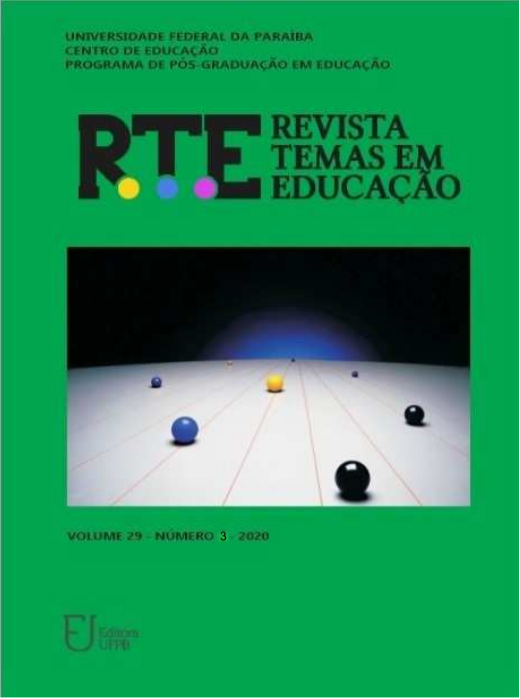THE PROCESSES OF SUBJECTIVATION AND CARE OF SI OF STUDENTS/ KARATECAS: THE SCHOOL INSTITUTION AND THE DOJÔ AS TRAINERS OF SUBJECTS
THE PROCESSES OF SUBJECTIVATION AND CARE OF SI OF STUDENTS/ KARATECAS: THE SCHOOL INSTITUTION AND THE DOJÔ AS TRAINERS OF SUBJECTS
DOI:
https://doi.org/10.22478/ufpb.2359-7003.2020v29n3.51972Keywords:
Education, Self-care, Subjects, InstitutionsAbstract
The present article is the result of a research developed in the master's degree in education, by the State University of Estadual do Paraná - UNIOESTE Francisco Beltrão campus, in which it was proposed to analyze the processes of subjectification culminating in self-care practices of karateka subj ects who started the practice in full-time schools in the municipality of Francisco Beltrão - PR and continued their activity in space at the karate dojo. In addition, it presents the interview of a karate mother of another karateka and a visually impaired student and teacher who discovered in art a way to reframe his existence. The method adopted was the case study with a focus on the post-structuralist methodology, mainly on Michel Foucault's theory. As a result of the research, we concluded that the school institution and the dojo are spaces of knowledge and trainers / makers of subjects who, based on the martial art in the educational space, enable practices that contribute positively to the lives of these subjects, which enables the discussion of education in postmodernity and the issue of human formation, understood as a propeller of new ways of life.
Downloads
Downloads
Published
How to Cite
Issue
Section
License
Authors who publish in this journal agree to the following terms:
. Authors retain the copyright and grant the journal the right to first publication, with the work simultaneously licensed under the Licença Creative Commons Attribution that allows the sharing of the work with acknowledgment of authorship and initial publication in this magazine. . Authors are authorized to assume additional contracts separately, for non-exclusive distribution of the version of the work published in this journal (eg, publishing in institutional repository or as a book chapter), with acknowledgment of authorship and initial publication in this journal.
. Authors are permitted and encouraged to publish and distribute their work online (eg in institutional repositories or on their personal page) at any point before or during the editorial process, as this can generate productive changes, as well as increase impact and citation of the published work (See O Efeito do Acesso Livre).



















